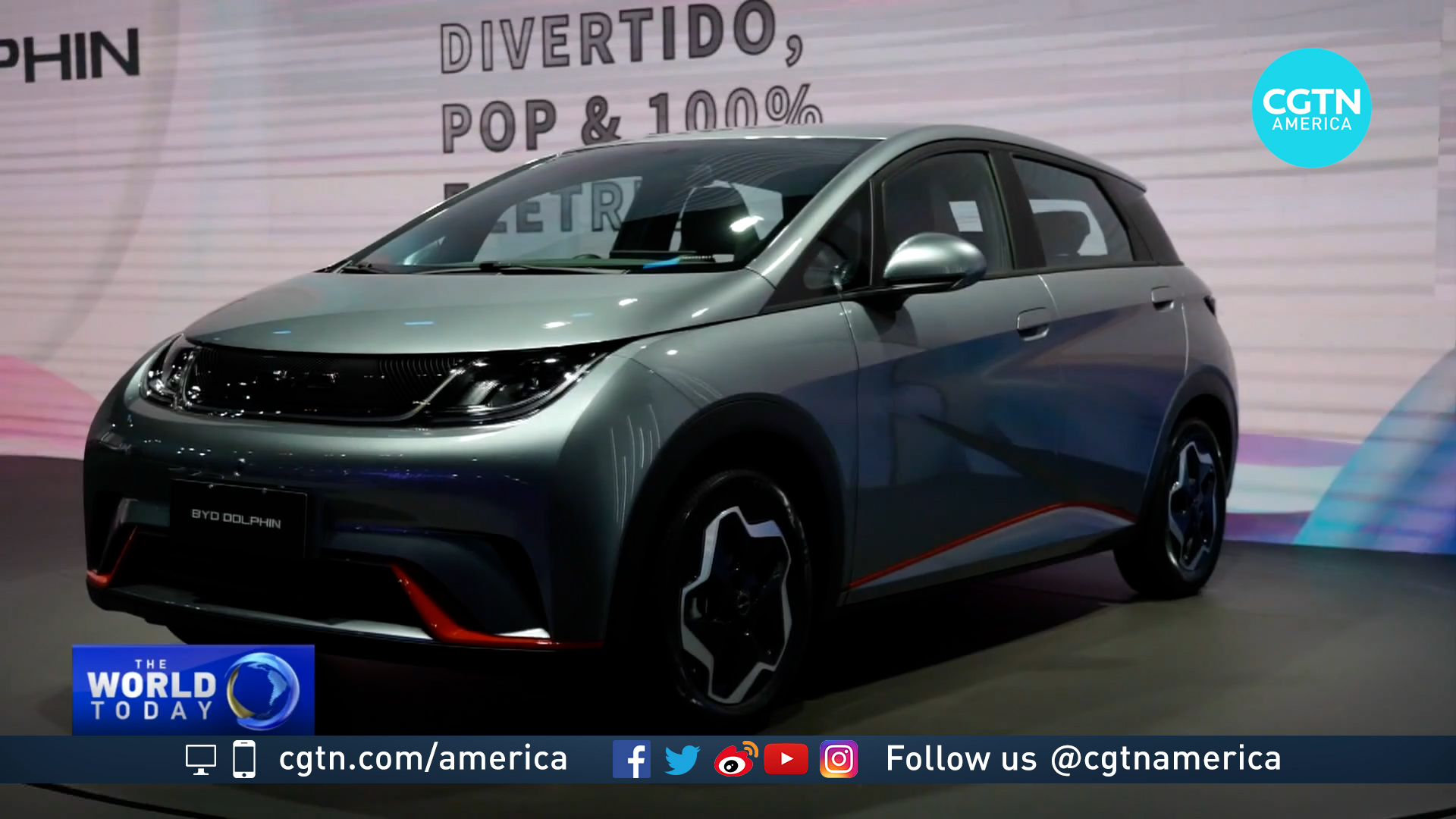China's BYD Challenges Ford's Legacy In Brazil's Electric Vehicle Market

Table of Contents
BYD's Strategic Entry and Rapid Growth in Brazil
BYD's success in Brazil isn't accidental. Its strategic approach involves a multi-pronged attack, focusing on competitive pricing, localization efforts, and targeted marketing campaigns. This has allowed BYD to rapidly gain market share in a relatively short time.
- Initial Market Penetration: BYD strategically launched with models appealing to price-sensitive consumers, offering competitive features at a lower price point than many established brands.
- Sales Figures and Market Share: While precise sales figures fluctuate, BYD's growth in the Brazilian EV market has been remarkable, rapidly increasing its market share and posing a significant threat to Ford's position. Independent analysis consistently shows BYD’s sales growth significantly outpacing Ford’s in the EV sector.
- Successful Models: BYD's success can be partly attributed to the popularity of specific models in Brazil. These models often offer a compelling combination of features, range, and affordability.
- Government Incentives: The Brazilian government's initiatives to promote EV adoption, including tax breaks and subsidies, have also provided a boost to BYD's sales.
Ford's Response to BYD's Challenge
Ford, a long-standing player in the Brazilian automotive market, is facing increasing pressure from BYD's rapid expansion. Its response to this new competition is crucial for its future success in the Brazilian EV market.
- Ford's Current EV Portfolio: Ford's current EV offerings in Brazil are relatively limited compared to BYD's diverse range of electric cars. This limited selection may be hindering their ability to compete effectively.
- Sales Performance: Ford's electric vehicle sales in Brazil have lagged behind BYD's, highlighting the challenges they face in this rapidly growing segment of the market.
- Marketing and Sales Strategies: Ford needs to adapt its marketing and sales strategies to counter BYD's aggressive approach. This includes not only emphasizing the benefits of their electric vehicles but also potentially adjusting pricing strategies.
- Future Plans: Ford's future plans in the Brazilian EV market will be pivotal. Investing in a broader range of competitive electric vehicles and improving their charging infrastructure will be crucial to maintaining a competitive edge.
The Broader Context of Brazil's EV Market
Understanding the broader context of Brazil's EV market is essential to analyzing BYD and Ford's performance. The market is dynamic, influenced by several factors.
- Market Size and Growth: The Brazilian EV market is relatively young but growing rapidly. This presents significant opportunities for both established and new players.
- Government Policies: Government incentives are key to fostering EV adoption in Brazil. Tax breaks, subsidies, and other policies are critical in stimulating demand.
- EV Charging Infrastructure: The availability of charging stations remains a challenge for broader EV adoption in Brazil. Addressing this infrastructure gap is essential for sustained growth.
- Consumer Attitudes: Consumer perceptions and acceptance of EVs are vital. Educating consumers about the benefits of EVs is crucial for driving sales and market growth.
The Role of Infrastructure and Government Policies
Government policies and the availability of EV charging infrastructure are intertwined and crucial for the success of both BYD and Ford in Brazil. Subsidies, tax incentives, and investments in charging infrastructure directly impact consumer adoption rates, influencing the competitiveness of each brand. A robust charging network is particularly vital for overcoming range anxiety, a major hurdle for potential EV buyers.
Future Outlook and Implications
The future of the Brazilian EV market is likely to be defined by the ongoing battle between BYD and Ford, and other emerging players.
- Market Predictions: The Brazilian EV market is projected to experience significant growth over the next decade. This growth will heavily depend on the continued expansion of charging infrastructure and government support.
- BYD's Future Plans: BYD's future success in Brazil will hinge on its ability to maintain its competitive pricing, expand its model range, and adapt to evolving consumer demands.
- Ford's Future Strategy: Ford needs to significantly enhance its EV offerings, strengthen its charging network, and implement more effective marketing strategies to reclaim market share.
Conclusion:
BYD's rapid expansion in Brazil's EV market presents a significant challenge to established players like Ford. BYD's strategic pricing, localization efforts, and the supportive government policies have fueled its growth. Ford's response will determine its future competitiveness. The ongoing competition between these two manufacturers highlights the dynamic nature of the Brazilian EV market. The future of EV adoption in Brazil, and globally, is being shaped by this kind of disruptive innovation. Stay tuned for further analysis on China's BYD and its impact on the global electric vehicle landscape, including its continued challenge to established players like Ford in key markets like Brazil.

Featured Posts
-
 Wildlife Wonders Exploring The Animal Kingdoms Diversity
May 13, 2025
Wildlife Wonders Exploring The Animal Kingdoms Diversity
May 13, 2025 -
 Gaza Hostage Situation The Unending Ordeal For Families
May 13, 2025
Gaza Hostage Situation The Unending Ordeal For Families
May 13, 2025 -
 Angel Has Fallen Box Office Success And Critical Reception
May 13, 2025
Angel Has Fallen Box Office Success And Critical Reception
May 13, 2025 -
 Gerrard In The Frame Southamptons Next Manager
May 13, 2025
Gerrard In The Frame Southamptons Next Manager
May 13, 2025 -
 How Duterte Shaped The Outcome Of The Philippine Midterm Elections
May 13, 2025
How Duterte Shaped The Outcome Of The Philippine Midterm Elections
May 13, 2025
